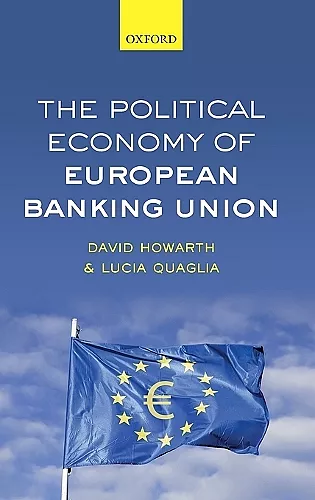The Political Economy of European Banking Union
David Howarth author Lucia Quaglia author
Format:Hardback
Publisher:Oxford University Press
Published:22nd Sep '16
Currently unavailable, and unfortunately no date known when it will be back

The establishment of Banking Union represents a major development in European economic governance and European integration history more generally. Banking Union is also significant because not all European Union (EU) member states have joined, which has increased the trend towards differentiated integration in the EU, posing a major challenge to the EU as a whole and to the opt-out countries. This book is informed by two main empirical questions. Why was Banking Union - presented by proponents as a crucial move to 'complete' Economic and Monetary Union (EMU) - proposed only in 2012, over twenty years after the adoption of the Maastricht Treaty? Why has a certain design for Banking Union been agreed and some elements of this design prioritized over others? A two-step explanation is articulated in this study. First, it explains why euro area member state governments moved to consider Banking Union by building on the concept of the 'financial trilemma', and examining the implications of the single currency for euro area member state banking systems. Second, it explains the design of Banking Union by examining the preferences of member state governments on the core components of Banking Union and developing a comparative political economy analysis focused on the configuration of national banking systems and varying national concern for the moral hazard facing banks and sovereigns created by euro level support mechanisms.
ISBN: 9780198727927
Dimensions: 240mm x 159mm x 21mm
Weight: 564g
288 pages